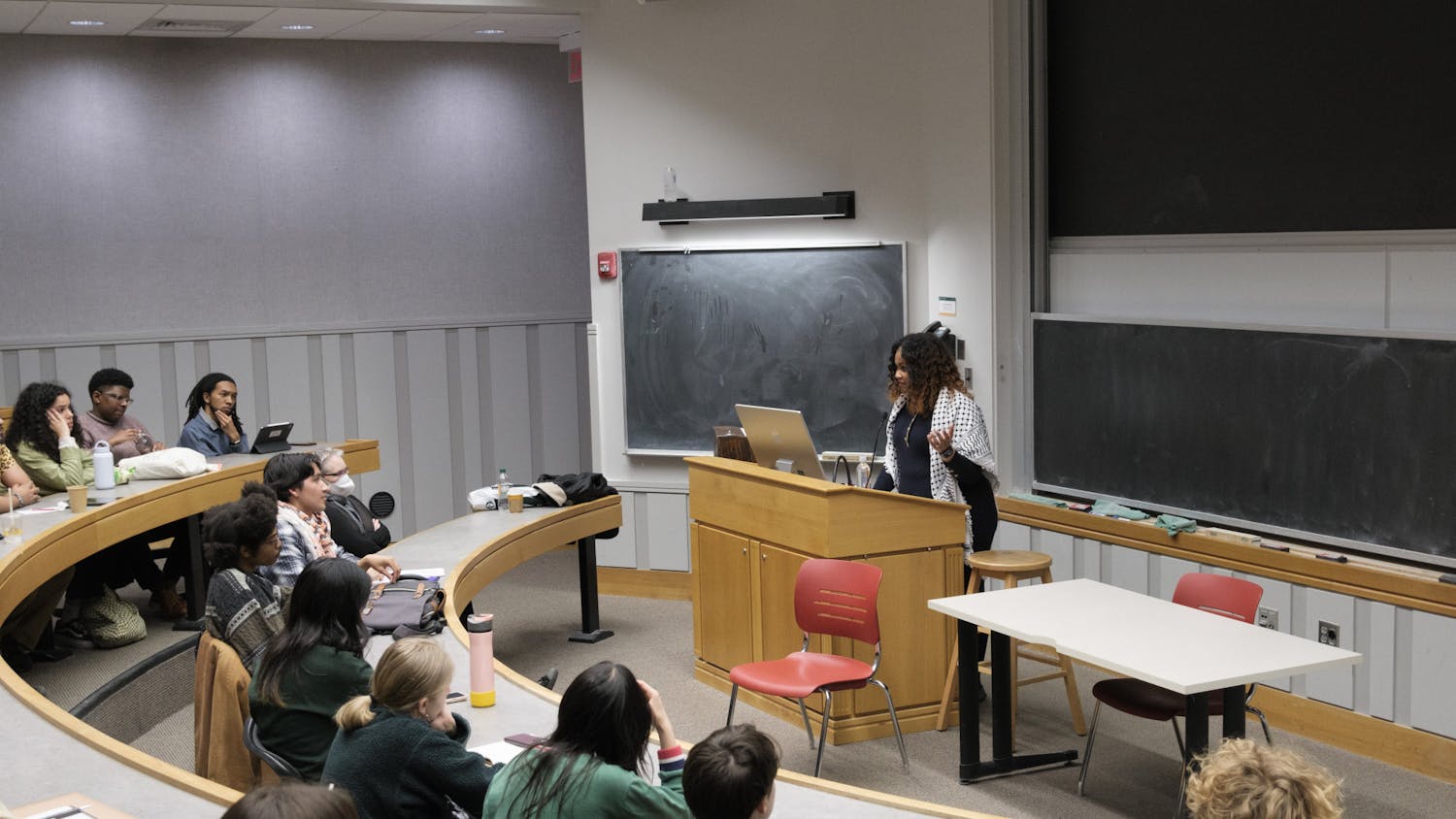An educator and authority on feminist theory, bell hooks presented a brown bag lunch discussion and an evening lecture as part of the year-long series "What is Feminism," sponsored by the Women's Resource Center, the Rockefeller Center and the Afro-American Society.
hooks, whose spells her name with lower-case letters to symbolize her belief that a person's ideas always supersedes the identity of the presenter, captivated the packed crowd in Collis Common Ground last night with her warm, relaxed demeanor and anecdotal presentation.
Before opening the floor to student questions, she discussed the thesis of her latest book, "Killing Rage, Ending Racism," in which she asserts that an end to white supremacy and racism in society will not evoke the idyllic world Martin Luther King once aspired for.
The author of the best-selling book "Ain't I a Woman: Black Women and Feminism" said that the patriarchal arrangement of society must be eradicated by the feminist movement before we experience the end of sexism.
In relation to the black community, hooks has written, "Many black folks do not know what the word feminism means. They may think of it only as something having to do with white women's desire to share equal rights with white men. In reality, feminism is a movement to end all sexism and sexist oppression."
Instead of viewing feminism as a woman's social cause, hooks said that feminism must evolve into a political cause that encompasses both males and females.
Her work aims to help black men and women incorporate feminism into their political agendas so that the movement will not fade away as the white woman's attempt to gain personal freedom.
An offspring of a southern family, hooks left her low-income family to earn a degree from Stanford University. Her family's insistence that she find a field in which she could support herself motivated her to take up the teaching profession.
She said that instead of seeing her teaching profession as a career, hooks viewed her pedagogical position as a job since she felt that writing was her first interest.
hooks received her doctorate from the University of California in English literature, anticipating that a teaching career that would support her desire to write.
As a 19-year-old undergraduate, hooks wrote her first book, which was published ten years later. She credits Tilly Olsen, a professor at Stanford and a writer, with first urging her to think of feminist theory in relation to black women.
Today she has more than ten titles to her credit, spawning the topics of pedagogy, race, feminism, and art. Presently, she is a professor at the City College of the City University of New York, but she said she currently spends much of her time talking with students and the larger community about the relationship between the black community and the feminist cause.
hooks said she is a strong proponent of listening well, stressing that no structure is absolute and that no idea is the final truth. In correlation with her Buddhist training, hooks quoted one of the religion's fourteen precepts that advises, "Do not think your present knowledge is changeless...Truth is found in life, not merely in conceptual knowledge."
Fear of anti-feminist backlash has weakened the feminist movement, hooks said. She points to the black community as the force that can rejuvenate the feminist movement. She, however, added that race and class must also be considered in the differentiation between the feminist cause of Gloria Steinem and the emerging feminism of the nineties that must secure a larger pool of supporters beyond its white contingency.



